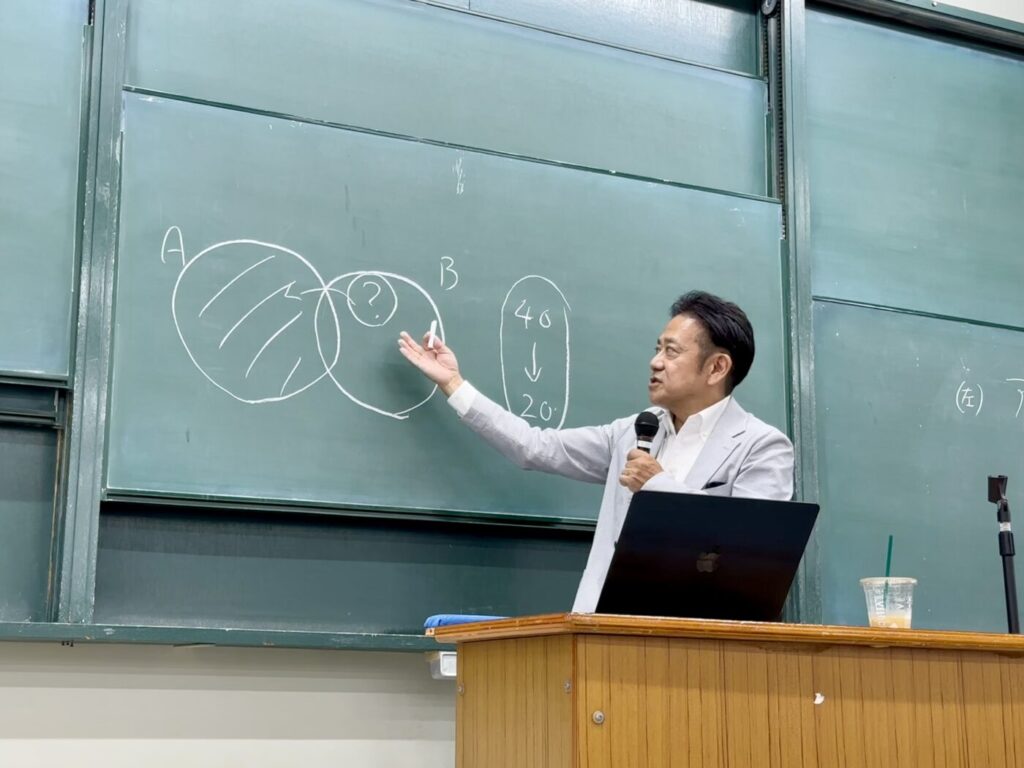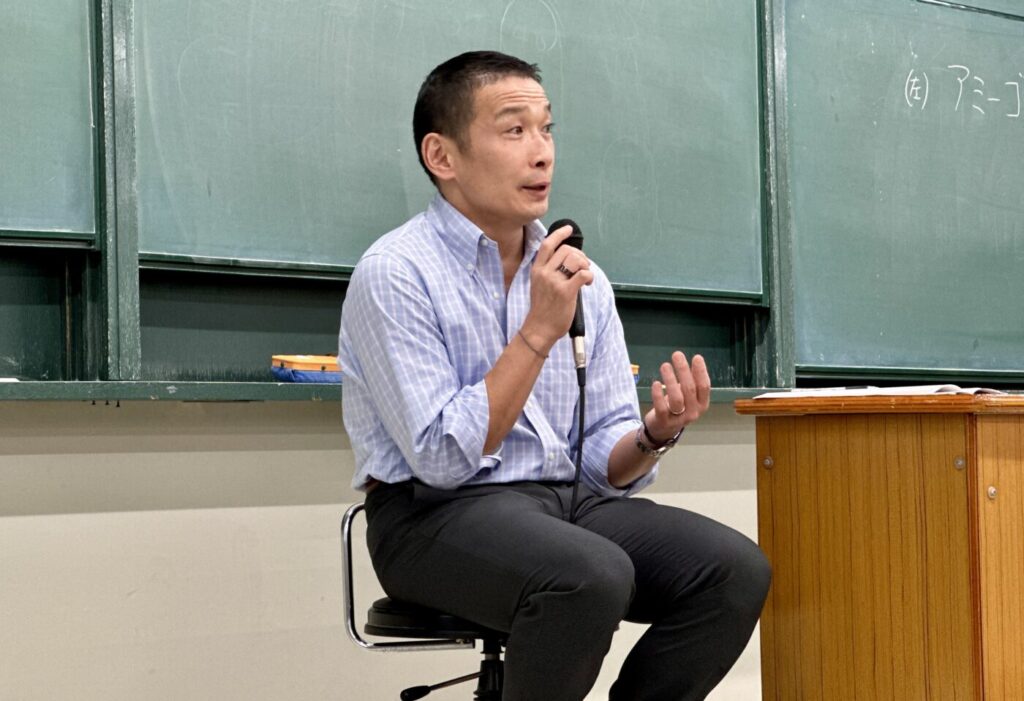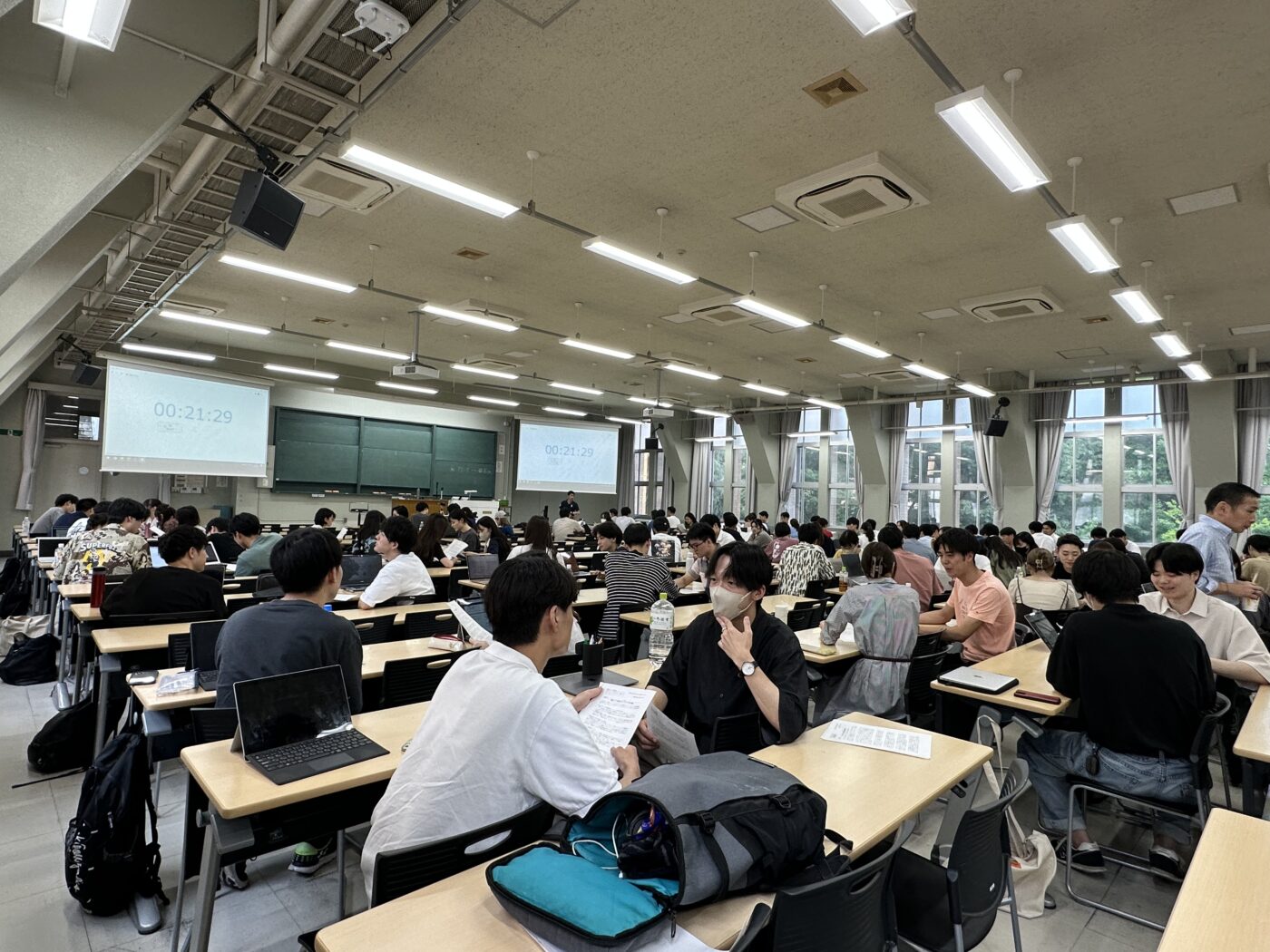Today’s lecture flow
▼Professor Tamura- (Lecture) Negotiation field skills in Japanese negotiation studies, Discussion matters under the complicated negotiation
▼Professor Tamura, TA Koyama- (Exercise) Developing practical skills through mock negotiation
In the first half of the course, participants learned about the “field”, from one of the three elements of the Japanese version of negotiation studies: logic, preparation, and the field.In particular, he explained the importance of utilizing the spirit of “sampo yoshi” of the Omi merchants, which has existed in Japan since ancient times.
In the latter half of the session, the participants engaged in a one-on-one mock negotiation using a more difficult case than the previous session in order to practically apply what they had learned in the lecture.Some pairs negotiated very aggressively, while others successfully presented their information to the other party, leading to the building of a trusting relationship.As in the previous mock negotiation, the students realized that their questioning skills were required to find out what the other party was thinking and what the situation was like.
Learning of the students – Extracts from the reflection sheets submitted after the lectures
● Third-year student in the Department of Law, Faculty of Political Science
In this mock negotiation, I was able to learn the importance of imagining the other party’s point of view and the situation in which they are in.I think that during negotiations, in order to fulfill one’s own needs, it is easy to turn the direction of one’s thinking toward oneself and the goal one wants to achieve.In the past, I often conducted negotiations in a self-centered manner, trying to find a solution that would suit my own needs.However, I have come to realize that the key to success in negotiations is to consider the objectives from the viewpoint of others and to objectively reconsider the issues under discussion.
In real life as well, when conflicts of opinion arise in dialogues with friends, discussions in seminars, group discussions for job hunting, etc., I would like to broaden my perspective from myself to others, calmly analyze what the point of contention is, and be aware of how to formulate a roadmap to solving the problem.To this end, I would like to practice listening on a daily basis, and change my note-taking style and awareness so that I can summarize a large number of issues in an instant.Through this mock negotiation, I was able to experience in a short time how the flow of business can be changed by one approach, and it was a very meaningful time for me
●Third-year student in the Department of literature
The most important point to be aware of this time was the three-step process of preparing matters to be discussed.First, the matters to be discussed are carefully identified and organized, priorities are determined according to their importance, and then the actual order of the matters to be discussed is determined. We learned that by negotiating the consultative items first, both sides can get an overview before negotiating the substance of the items and can proceed with negotiations while sharing the overall picture.In the mock negotiation, we were conscious of confirming the facts first, but we had a hard time because there was a discrepancy in mutual recognition there.In addition, since we did not introduce ourselves before the mock negotiation and negotiated without getting to know each other, the tension increased, and I felt that this was an opportunity to test our true skills, which are also needed in business.As a point of reflection, I may have emphasized my occupation, for example, to make myself look big and show that I would not give in to the other party, and I may have been too hasty in the negotiations and did not use solid Japanese well enough.In the next round of negotiations, I would like to proceed with these points in mind.


 Twitter
Twitter Instagram
Instagram
